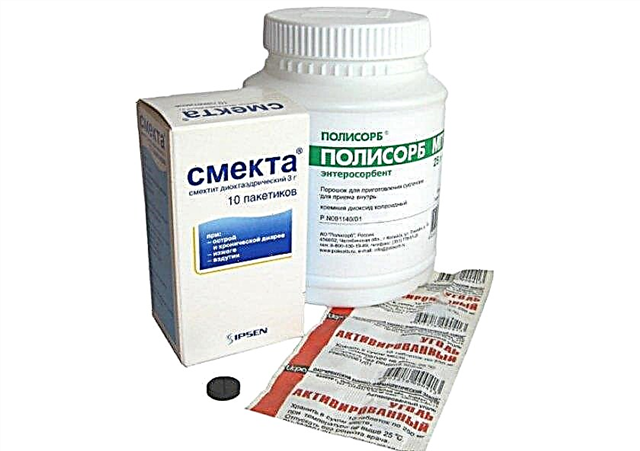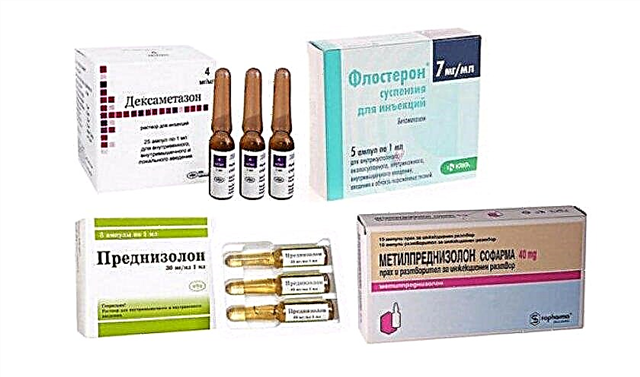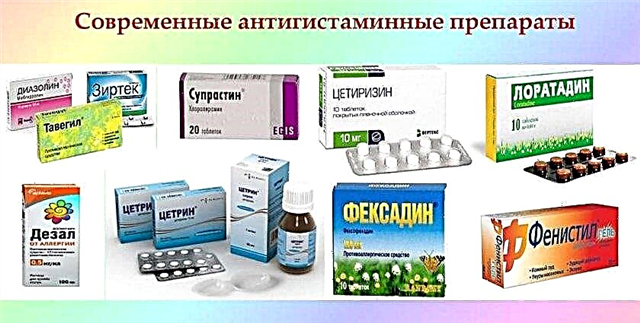Onion is one of the most healthy and widely available vegetables. But, despite the fact that onions are considered a hypoallergenic product, proteins in its composition can sometimes cause allergies in both an adult and a one-year-old child. From the article you will find out what causes increased sensitivity to onions, whether allergies can be cured, and find information on diagnostics and treatment methods.
Which onion most often causes allergies
Onion is not only a food product, but also a healing raw material. But among allergy sufferers, namely, 1.9% of people, onions can cause allergic reactions even in the absence of such a predisposition among their relatives.
Of the whole variety of onion types, there is an increased danger for people prone to allergies:
But since all types of onions contain allergens, it is possible for antigens to interact with each other of each sort, which causes cross-reactivity. As a result, the immunopathological process can also occur on red onions, leeks, batuns, chives, shallots, garlic and other varieties.In case of malfunctions of the immune system, the hyperimmune (excessive) response of the body manifests itself with the direct ingestion of a vegetable with food, but possible symptoms in other cases:
- the presence of onion extract in cosmetics;
- vegetable husk and dust - while a person is able to safely eat a vegetable, but cannot contact with it;
- preservation using onions.
It is quite difficult to determine the direct effect of onions on the pathological reactions of the body, since exogenous allergens can accumulate and manifest over time. The question of whether a latent allergy is dangerous can be answered in the affirmative, since clinical symptoms may appear after a while (up to several days) or not at all. Slow-moving pathological processes can cause chronic diseases of the gastrointestinal tract, respiratory and nervous systems.
An allergy can be confused with a reaction to toxins and intolerance to the product, which manifests itself in the following cases:
- intolerance to the product has nothing to do with allergies and leads to disorders only in the gastrointestinal region due to the lack of the necessary enzymes for digesting the product;
- increased susceptibility of drugs that were treated with vegetables during storage;
- allergies caused by chemicals in the processing of crops.
Important! Immunopathological reactions to pchives make up 0.7% of the total number of known cases of onion allergies. It contains the least amount of hazardous substances and compounds..
Causes of an allergic reaction
Allergies to onions are not common, despite its widespread use, since the vegetable does not contain well-known allergens. If you are allergic to this food, the body’s immune system perceives onion substances as foreign antibodies and starts producing histamine, which in normal conditions is inactive. Free active histamine and provokes pathological reactions of the body.
The allergenicity of the vegetable is associated with a high content of profilin (cytoplasmic vegetable protein) and diallyldisulfide (organic sulfide, causes the smell of onions). These substances are present in all types of onion crops and can cause pathological reactions in case of malfunctions in the body's immune system.
Dialyldisulfide - The main allergen that causes skin manifestations (dermatitis, eczema) and complications in the respiratory system (rhinitis, bronchial asthma).
Profilin - vegetable protein, which is destroyed by heat treatment; therefore, boiled, baked and frozen vegetables are less allergenic. This protein can cause cross-reactivity when consuming other products containing profilin.
Less weak exogenous allergens are the lipid transport protein (LTP) and the alliin lyase enzyme, which, if the intake rate is exceeded, can trigger the release of histamine and subsequent reactions.
The presence of lipid transporter protein (LTP) in onions can lead to an increase in the action of this allergen when eating foods containing the same protein, which causes cross-reactivity. Strengthen the action can garlic, peach, asparagus, celery, hazelnuts. Other varieties of onion crops (seeding, leek, shallot) can also lead to cross-reactions.
The immunity of a healthy person easily recognizes onion proteins, but in case of malfunctions in the functioning of this vital system for the body, a reaction develops called “allergy to onions”.Symptoms
The manifestation of an unhealthy reaction to onions is the same as when the body attacks other allergens:
- urticaria, rash, itching of the skin and mucous membranes;
- edema of the upper and lower eyelids, hyperemia (overflow with blood vessels) of the conjunctiva of the eyes, lacrimation;
- wheezing, shortness of breath, cough, sore throat;
- sneezing, runny nose;
- severe nausea, vomiting, or heartburn.
- anaphylactic shock;
- bronchospasm, followed by acute asphyxia;
- a sharp increase in blood pressure;
- pulmonary and laryngeal edema;
- angioedema or Quincke's edema.

A distinctive feature of food allergies is the transience of manifestation - 5-10 minutes after internal consumption of onions or by air contact with onion husks and dust.
The child has
Children are the most vulnerable category among possible patients with signs of allergy. The immune system, which prevents the development of the immunopathological process, will finally form only by the age of seven. Prior to this, children are especially carefully injected with onions in their diet, since it is during this period that there are most cases of the development of an allergy to a vegetable.
Green feathers cause pathological reactions more often than other types of onion crops, therefore, greenery should be used carefully. In preschool, green onions are generally excluded from the children's diet.In order to reduce the manifestation of allergies, the vegetable must be boiled, stewed or fried, since during heat treatment the bulk of onion allergens breaks up.
Children's allergic manifestations are as follows:
- redness of the skin, the appearance of a small skin rash, water bubbles;
- peeling of the skin on the scalp;
- edema of the mucous membranes of the eyes due to impaired capillary permeability;
- allergic rhinitis (rhinitis);
- pruritus, diathesis and dermatitis;
- indigestion, nausea and vomiting;
- shortness of breath, debilitating cough.

Many allergy symptoms are similar to manifestations of childhood illnesses and infectious diseases, so a pediatrician should determine the correctness of treatment. Correctly diagnosing the presence of allergic conditions can only be done by an allergist, having performed the necessary tests and enzyme-linked immunosorbent assay (ELISA).
In infants
In infancy, allergens can enter the body of a child with mother's milk in the absence of complementary foods.
Allergy in this case manifests itself as follows:
- sleep disturbance;
- frequent crying and restless state;
- skin rashes;
- colic
- cardiopalmus;
- causeless and frequent spitting up.
In case of suffocation and respiratory failure, the newborn needs emergency medical care.
The identification of the disease is fundamentally important for infants and young children, as their fragile digestive system does not yet contain enzymes that can digest this or that food.
In complementary foods, which begin from 7-8 months, onions (in soups and broth) are subjected to heat treatment, which can reduce the allergic properties of the product. Raw onions can be given to a child from the age of three. In any case, constant monitoring of the child’s well-being is necessary and, in case of undesirable symptoms, withdrawal of the vegetable from consumption.
It is necessary to remember about the accumulation of the allergen: a single dose may not cause allergies, but with a total effect, the allergy will manifest itself in a severe form.
During pregnancy and lactation, onion consumption should be controlled so as not to cause allergies in the baby afterwards. Hypersensitivity to vegetables can be inherited and acquired. If one of the parents is prone to allergies, then the child with a probability of 30% will be allergic to the same allergen and in 12% to others. If both parents are allergic, then the probability will increase to 70% and 23%, respectively.
Important! With all the warnings, it should be noted that allergies to onions in infants are rarely diagnosed, and the beneficial properties of the vegetable can strengthen the baby's immunity and protect against infections.
In adults
Onions and its derivatives (dust, husks, smell) can be an allergen for workers in the food and canning industry, agricultural companies, seed and spice packers.
An allergy to food in an adult is not pronounced. You can consume a vegetable as food without even suspecting yourself allergic to this product, and to attribute the ailments to other ailments:
- spasmodic abdominal pain, bouts of nausea with vomiting, diarrhea can be confused with an intestinal infection (ate something) or surgical deviation (appendicitis, ulcer, pancreatitis);
- changes in breathing, shortness of breath, runny nose, sneezing and inflammation of the eyes are attributed to colds;
- a rash on the skin and in the mouth, itching is more likely to alert, but here you can find other reasons.

It should be noted that pathological manifestations can be:
- the smell of onions;
- on cosmetics;
- on preparations of alternative and classical medicine;
- hygiene products.
Symptoms of an adult can be divided by area of impact on the body.
Respiratory:
- difficulty breathing and swallowing, and a lack of oxygen leads to interruptions in the activity of the heart;
- cough, runny nose, sneezing, nasal congestion;
- swelling of the nasal mucosa, eyes;
- redness of the upper and lower eyelids, lacrimation.
Did you know? The monument to the onion was erected in the suburbs (village Myachkovo). Revenues from its sale - the main source of profit for local farmers, so the inscription on the pedestal reads: "Our happiness is onion."
Gastroenterological:
- indigestion, nausea and vomiting;
- cramping and bloating;
- diarrhea or constipation.
- redness and a rash on the skin and mouth, water bubbles throughout the body;
- rash and itching;
- edema of the mucous membranes develops on too large an area;
- laryngeal edema can cause respiratory failure and asphyxiation.

First aid for severe complications
The most dangerous form of manifestation of an allergic nature are:
- anaphylactic shock;
- angioedema (Quincke's edema);
- Minier's disease;
- Lyell's syndrome.
Prior to the arrival of the ambulance, the victim should be isolated from exposure to the allergen, laid on a hard surface, and air should be provided.
If a person is able to swallow, an antihistamine should be given. Otherwise, intramuscular administration of adrenaline and cardiopulmonary resuscitation will help.Important! Emergency doctors should be notified of the medication they have been given and the cause of the allergy.
Allergy treatment
Effective treatment and prevention of allergies depends on the correct diagnosis and determination of the causes of the disease. The difficulty is that allergies can be caused by cross-reactions, and allergy symptoms are similar to symptoms of other diseases. Excluding these factors, it is necessary to carefully examine the state of the immune system and determine the root cause of the allergy.
Diagnosis is carried out by an allergist based on information about possible antigens (allergens), a general history.
The survey includes the following activities:
- Allergic diagnostic tests (RAST test).
- The reaction of blood serum to an allergen.
- Tests of the mucous membranes of the mouth and nose.
- Skin tests.
- Food provocations.
- Elimination diet.

The level of immune response determines further treatment and a possible change in the patient’s lifestyle and nutrition, which will reduce symptoms or completely get rid of allergies.
Allergy treatment begins after the identification of a dangerous allergen, and according to the results of the diagnosis, appropriate therapy is prescribed.
Often an elimination diet is the only way to treat it, that is, the complete exclusion of onions from the diet, the exclusion of cosmetics and medicines based on it. But this extreme measure should be applied when others have not yielded positive results.
When reacting to raw onions, onion dust or husk under the supervision of a doctor, you can include the vegetable in the diet in small portions after heat treatment.
If a person is allergic to onions, he should also be wary of grass pollen and cereal crops due to a cross-reaction.Important! Any funds should be taken after diagnosis and consultation with a doctor, according to the instructions.
Drug therapy
Drug therapy for adults is based on the use of enterosorbents, antihistamines and corticosteroids.
 Enterosorbents serve to prevent intoxication of the body and the removal of xenobiotics from the gastrointestinal tract (gastroenterosorption detoxification) in the treatment of allergic diseases:
Enterosorbents serve to prevent intoxication of the body and the removal of xenobiotics from the gastrointestinal tract (gastroenterosorption detoxification) in the treatment of allergic diseases:
- Enteros-gel;
- "Polyphepan";
- Polysorb;
- "Smecta";
- "Filtrum";
- Activated carbon.

- Prednisolone
- "Methylprednisolone";
- "Dexamethasone";
- "Mometasone furoate";
- "Poratadin";
- "Cetirizine";
- "Diazolin."

Antihistamines when administered provide competitive blockade of histamine receptors:Important! Third-generation antihistamines remain effective for 18–20 hours, do not cause drowsiness or addiction.
- "Suprastin";
- Zirtek;
- "Tavegil";
- "Supradin";
- "Zodak";
- Erius
- "Claritin Tsetrin."

Folk methods
Allergy treatment with folk remedies and methods is also allowed only after consulting a doctor.
Mitigation of rhinitis:
- yarrow harvest;
- picking violet tricolor;
- a decoction of viburnum bark, nettle chamomile;
- mummy.
- juice of fresh cucumber or apple;
- potato gruel;
- baths from the decoction of the string, chamomile, ground oats, Jerusalem artichoke root.
Did you know? By the content of healthy sugars, onions are comparable to raspberries and are superior to melons. And there is more vitamin C in onions than in grapes.
Removal of skin inflammation:
- infusion of medicinal chamomile and calendula;
- decoction of dandelion and burdock;
- mummy;
- decoction of oak bark and chamomile;
- aloe and rosehip oil;
- tea from the branches of black currant.
Strengthening immunity:
- decoctions of celandine and St. John's wort;
- fruits of hawthorn and rose hips;
- badger fat;
- echinacea, ginseng.

Preventive recommendations
Preventive recommendations can be summarized as follows:
- heat the onion with a temperature not lower than + 100 ° С;
- when symptoms appear, exclude the vegetable from the diet completely, switch to an elimination diet;
- maintaining a food diary will facilitate the analysis of ongoing changes;
- introduce onion product in small portions, following the reaction of the body;
- keep antihistamines with you;
- have an allergic medical passport;
- relax in ecologically clean regions;
- strengthen immunity.
A properly and carefully designed diet will help to avoid undesirable complications in case of malfunctions of the immune system. Balanced nutrition and discipline are the main conditions for the treatment of allergies, without which medication can be ineffective.


















